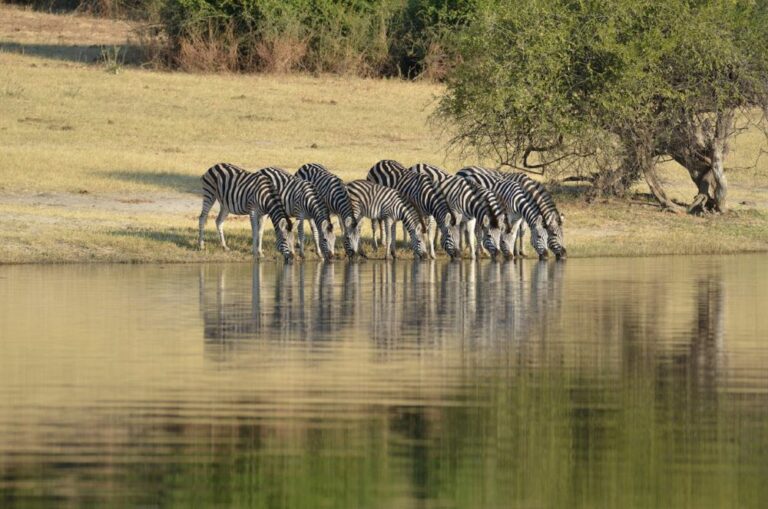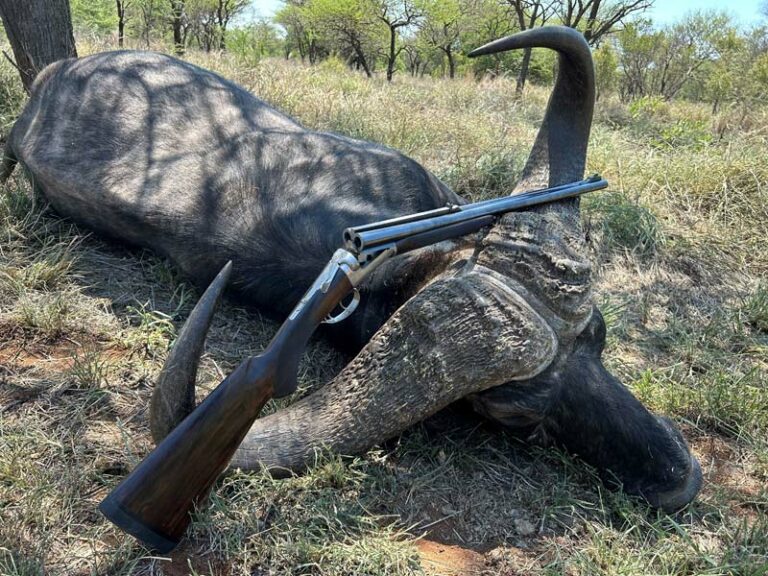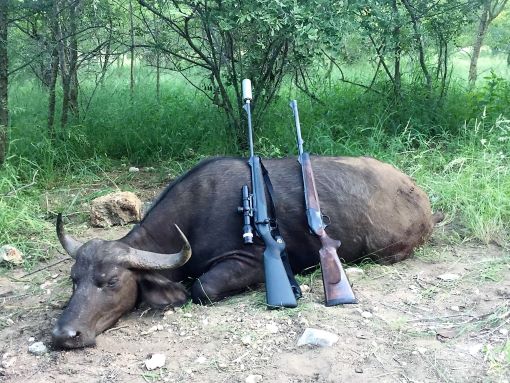Safari hunting has undergone significant changes over the years. While the activity once focused on trophies and exploration, modern safari hunters are embracing a new role—balancing tradition with conservation. Today, hunting plays an essential part in sustainable wildlife management and supports local communities. This guide explores how contemporary safari hunters continue this legacy responsibly.
[DYNAMIC-BLOGTABLEOFCONTENT]
The Evolution of Safari Hunting
Safari hunting has its roots in the 19th century when explorers and big game hunters ventured into Africa’s wilderness. Over time, the emphasis on trophies shifted as the need for conservation became apparent.
Then and Now
- Historic Approach: Trophy-focused expeditions targeting as many species as possible.
- Modern Focus: Regulated hunts aimed at sustainability and wildlife management.
The Role of Conservation
Today’s safari hunters operate within a framework that prioritises:
- Wildlife Preservation: Maintaining healthy populations through selective hunting.
- Community Benefits: Supporting local economies and anti-poaching initiatives.
- Habitat Protection: Funding conservation projects and land restoration.

Principles of Modern Safari Hunting
To strike a balance between tradition and conservation, modern safari hunters adhere to these core principles:
1. Ethical Hunting Practices
Ethical hunting ensures respect for wildlife and minimises environmental impact. Key practices include:
- Targeting non-breeding animals.
- Avoiding overhunting by adhering to quotas.
- Ensuring quick, humane kills.
2. Collaboration with Conservationists
Hunting operations often work alongside conservation organisations to monitor wildlife populations and enforce regulations.
3. Community Engagement
Successful safari hunting depends on local support. Hunters contribute to communities by:
- Funding schools and healthcare.
- Creating jobs in guiding, hospitality, and conservation.
- Sharing revenue from hunting permits.
The Impact of Safari Hunting on Conservation
Hunting’s role in conservation is often misunderstood. However, when regulated, it provides significant benefits.
1. Wildlife Management
Hunting helps control overpopulated species, reducing pressure on ecosystems. For instance, elephants in certain areas can cause habitat degradation if their numbers aren’t managed.
2. Anti-Poaching Funding
Revenue from hunting permits funds anti-poaching units and surveillance technologies, protecting endangered species from illegal activities.
3. Habitat Preservation
Safari hunting incentivises the protection of vast tracts of land, ensuring that habitats remain intact for all wildlife—not just hunted species.
Challenges Facing Modern Safari Hunters
Despite its benefits, safari hunting faces criticism and challenges. Addressing these is vital for its continued role in conservation.
1. Public Perception
Many view hunting as incompatible with conservation, often due to misconceptions about its purpose and regulation.
2. Illegal Hunting
Unregulated or illegal hunting undermines the efforts of ethical safari hunters and damages ecosystems.
3. Climate Change
Shifting climates affect wildlife behaviour and habitats, complicating conservation efforts.

Best Practices for Modern Safari Hunters
If you’re considering a safari hunt, adhering to best practices ensures your trip aligns with conservation goals:
1. Choose Ethical Outfitters
Work with licensed operators who prioritise sustainability and community involvement. Look for transparency in their operations and reviews from past clients.
2. Understand Local Laws
Each country has specific regulations governing hunting. Familiarise yourself with these rules to ensure compliance.
3. Support Conservation Initiatives
Allocate part of your budget to conservation projects. Many operators offer packages that include donations to local efforts.
4. Respect Wildlife and Culture
Practice respect for both the animals and the communities you interact with. This builds goodwill and enhances your experience.
Spotlight on Successful Conservation Models
Several African countries have demonstrated how regulated safari hunting supports conservation:
1. Namibia
Namibia’s community conservancies allow local populations to manage and benefit from wildlife. This approach has led to increased animal numbers and reduced poaching.
2. Botswana
In Botswana, hunting quotas are scientifically determined to balance population growth and ecological impact. Revenue supports both conservation and community development.
3. South Africa
South Africa’s private game reserves have successfully reintroduced species like the rhinoceros, funded in part by safari hunting revenue.
The Future of Safari Hunting
As wildlife conservation becomes increasingly critical, modern safari hunters must continue to evolve. Collaborative efforts between governments, conservationists, and hunters are key to preserving Africa’s unique ecosystems.
Emerging Trends
- Technology Integration: Drones and tracking apps are aiding in wildlife monitoring.
- Eco-Tourism Synergy: Combining hunting and photographic safaris appeals to a broader audience.
- Education and Advocacy: Raising awareness about the benefits of regulated hunting can change public perception.
Conclusion
Modern safari hunters are more than adventurers; they are stewards of Africa’s wildlife. By balancing tradition with conservation, they contribute to preserving ecosystems and supporting local communities. As the practice continues to adapt, its role in sustainable wildlife management remains vital. For those considering a safari hunt, understanding these dynamics ensures a meaningful and responsible experience.
